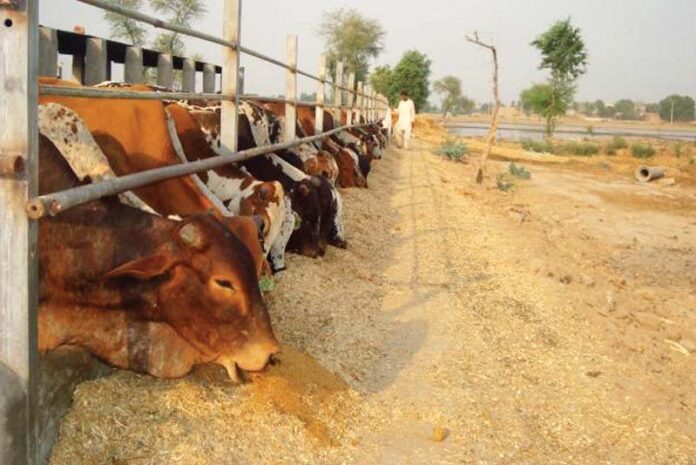Pakistan is poised to lift the long-standing ban on the commercial export of sheep and goats, first imposed over a decade ago.
The move comes in response to increasing demand from Gulf countries, including Saudi Arabia, Kuwait, and the United Arab Emirates (UAE).
The Ministry of National Food Security and Research (MNFSR) has finalised a proposal to revoke the 2009 decision and has submitted the summary for approval by the federal cabinet.
The Executive Committee of the Special Investment Facilitation Council (SIFC) has already reviewed and agreed to lift the ban on live animal exports.
The ban on live animal exports was initially introduced in 2009 by the Economic Coordination Committee (ECC) of the Cabinet due to concerns over smuggling, particularly across the Afghan border, which led to local shortages and price instability.
In July 2013, the ECC approved a complete ban on live animal exports to stabilize prices in the domestic market.
According to the latest summary, several domestic investors have begun establishing small- to medium-scale feedlot fattening farms, which are expected to produce a surplus of goats and sheep in the coming years.
The MNFSR has also reached out to Gulf nations for potential investment in these farms, and investors from Saudi Arabia, Kuwait, and the UAE have shown keen interest.
The summary points out that the agricultural sector is a vital contributor to Pakistan’s economy, accounting for 24% of gross domestic product (GDP). Livestock production represents 60.84% of the agricultural value added and 14.5% of the overall GDP in 2023-24.
It further notes that animal husbandry is a key economic activity for rural populations, with over 8 million families relying on livestock for 35-40% of their income.
Pakistan’s livestock inventory in 2023-24 consisted of 224.7 million heads, including 57.5 million cattle, 46.3 million buffaloes, 32.7 million sheep, 87 million goats, and 1.2 million camels.
The country produced approximately 70 million tonnes of milk and 3.447 million tonnes of meat, including 2.630 million tonnes of beef, 0.917 million tonnes of mutton, and 2.363 million tonnes of poultry meat.
























